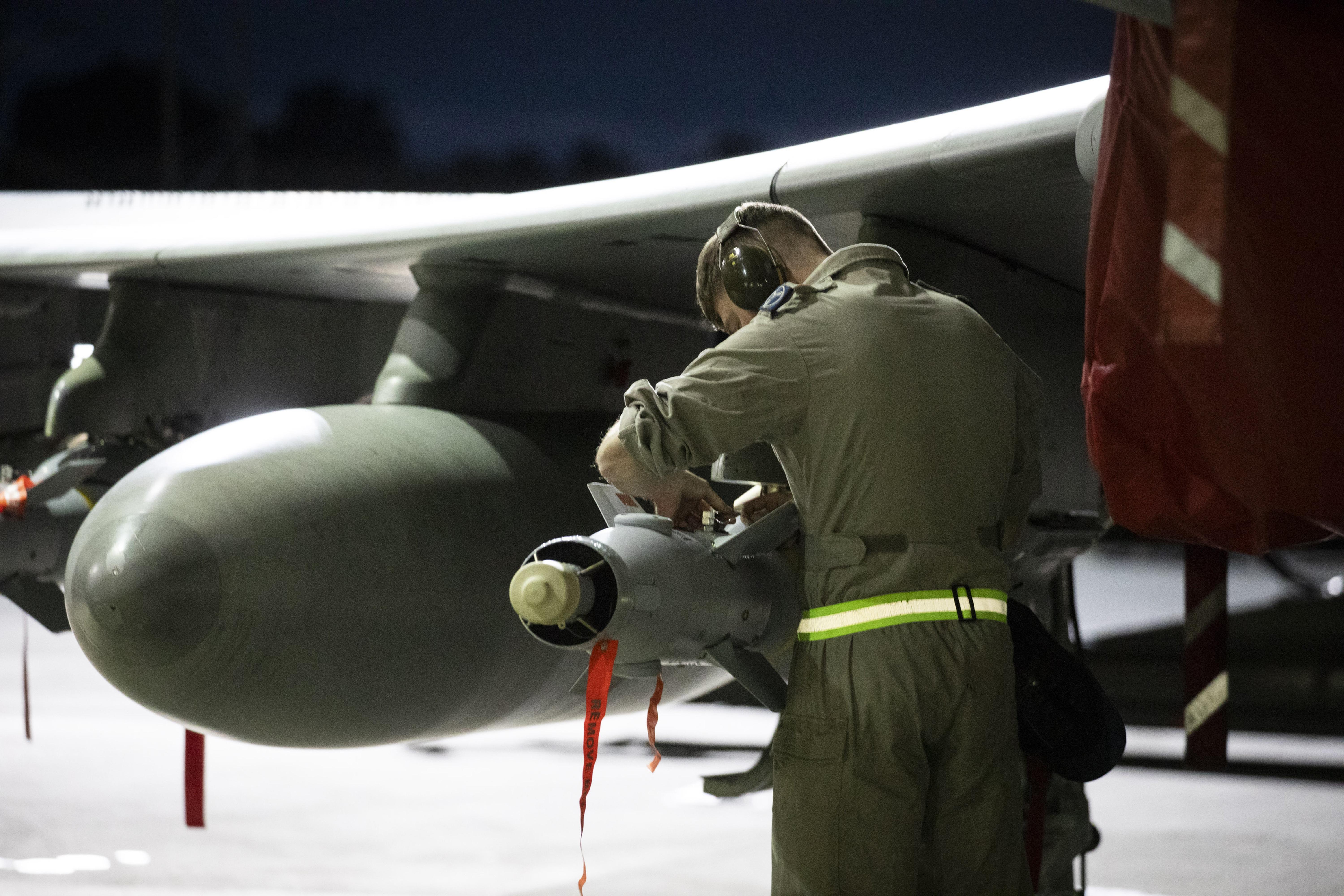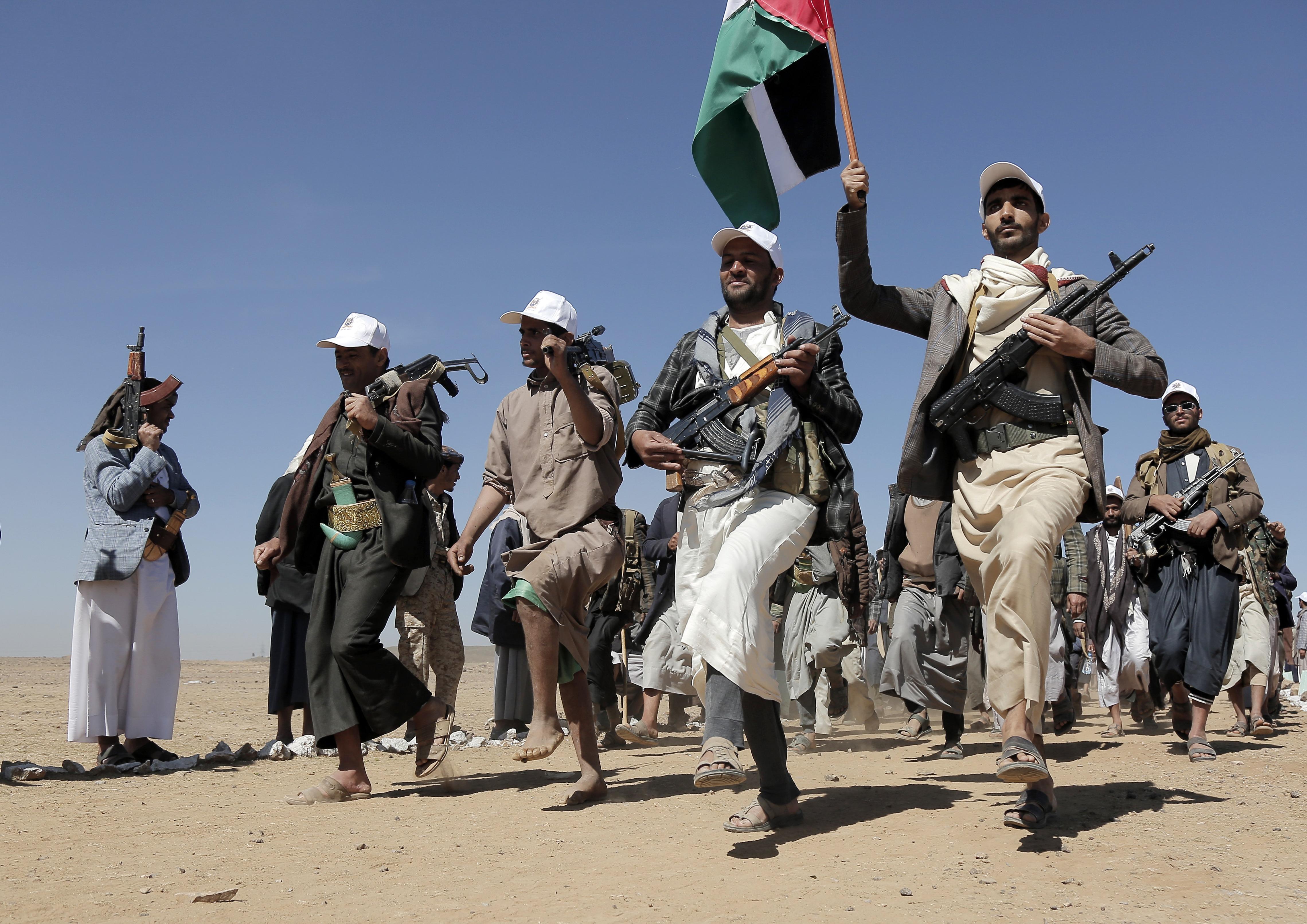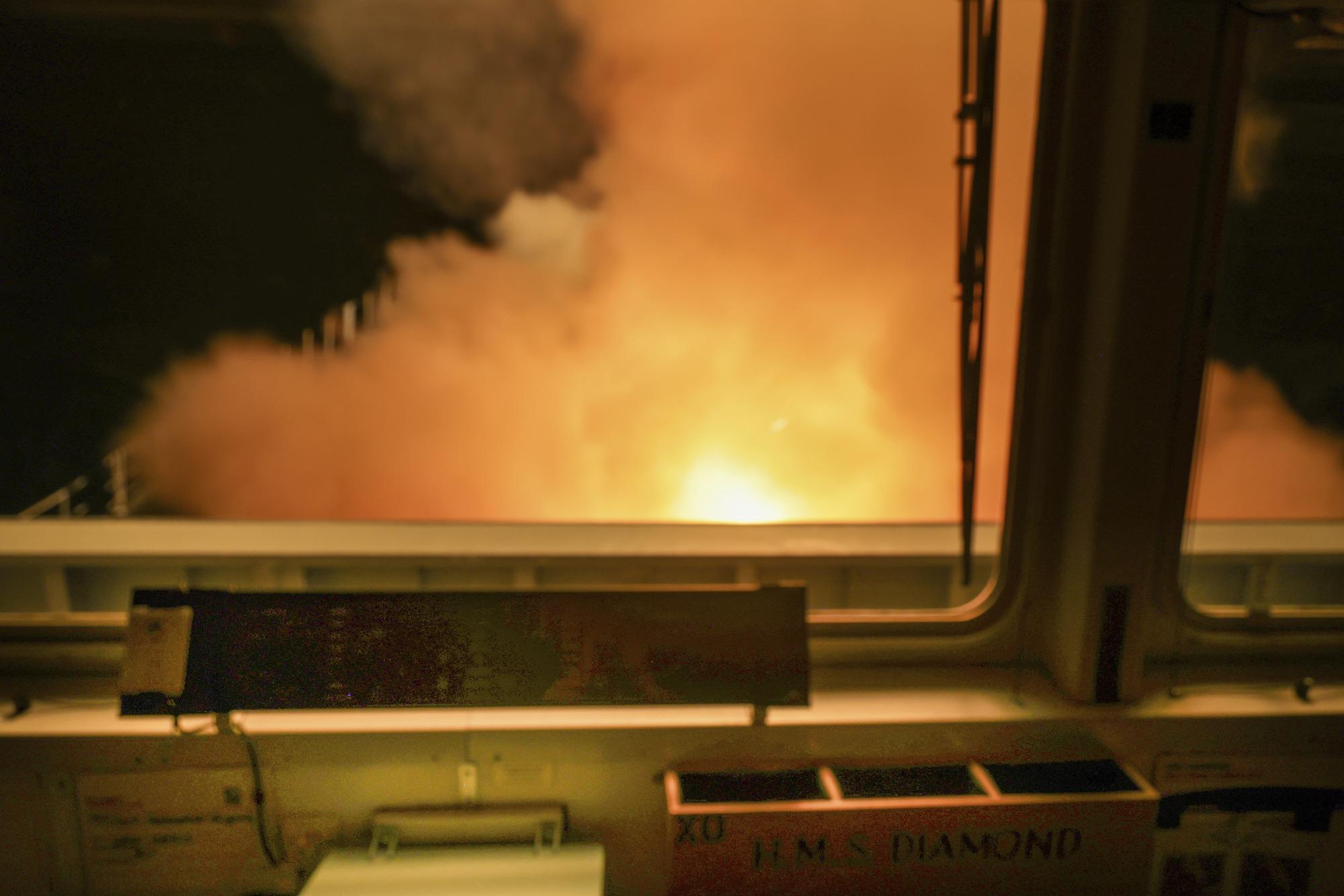 In this image provided by the UK Ministry of Defence, RAF Typhoon FRG4s are prepared to conduct further strikes against Houthi military targets in Yemen, from RAF Akrotiri, Cyprus, Feb 3, 2024. (PHOTO / AP)
In this image provided by the UK Ministry of Defence, RAF Typhoon FRG4s are prepared to conduct further strikes against Houthi military targets in Yemen, from RAF Akrotiri, Cyprus, Feb 3, 2024. (PHOTO / AP)
ADEN, Yemen/BAGHDAD/SANAA - Yemen's armed Houthi group on Tuesday claimed responsibility for launching attacks against US and British vessels in the Red Sea after the two nations launched three airstrikes on Yemen's northern province of Saada before dawn on the same day.
"We carried out two military operations in the Red Sea, the first targeting an American ship (Star Nasia) and the other targeting a British vessel (Morning Tide). Both ships were targeted with appropriate naval missiles, and the hits were accurate and direct," Houthi military spokesman Yahya Sarea said in a statement broadcast by the group's al-Masirah TV.
"We will carry out more attacks against all hostile American and British targets in the Red and Arabian Sea," he said, claiming their attacks came in solidarity with Palestinians in Gaza.
 Houthi fighters march during a rally of support for the Palestinians in the Gaza Strip and against the US strikes on Yemen outside Sanaa on Jan 22, 2024. (PHOTO / AP)
Houthi fighters march during a rally of support for the Palestinians in the Gaza Strip and against the US strikes on Yemen outside Sanaa on Jan 22, 2024. (PHOTO / AP)
Tuesday's three US-British airstrikes occured following the Houthi group's threat of retaliation on Monday after the two nations conducted more than 300 airstrikes across Yemen in the past month.
The strikes targeted sites in the eastern part of the province's capital city, which bears the same name, the al-Masirah TV said without elaborating.
The fresh airstrikes occurred following a reported missile attack towards the Red Sea.
The US Central Command confirmed that the US military struck two Houthi explosive uncrewed surface vehicles in Yemen.
Yemen's Houthi group on Monday accused the United States and Britain of "unjustified aggression" and threatened retaliation after the two nations conducted more than 300 airstrikes across the country in the past month
The command said in a statement that the strikes were launched at approximately 3:30 pm Sanaa time, and the targets were deemed "an imminent threat to US Navy ships and merchant vessels in the region."
Yemen's Houthi group on Monday accused the US and Britain of "unjustified aggression" and threatened retaliation after the two nations conducted more than 300 airstrikes across the country in the past month.
Houthi officials said the airstrikes hit their camps and positions in several northern provinces, including the capital Sanaa.
The attacks included at least 15 strikes Sunday night targeting Houthi strongholds in Saada province and the strategic Red Sea port city of Hodeidah.
Local media outlets reported that the raids resulted in civilian casualties, with some of the wounded being rushed to nearby hospitals for urgent medical treatment.
This escalation comes after a two-day period during which the US and British forces executed a total of 48 raids on the Houthi-held capital, Sanaa, and other Yemeni provinces.
The airstrikes are part of an ongoing military response by Washington and London since January 12, targeting Houthi-controlled areas of Sanaa and other northern provinces. The international actions are reportedly in retaliation for Houthi attacks on commercial shipping in the Red Sea.
ALSO READ: Houthis say they strike Israel with ballistic missiles
 In this photo provided by the Royal Navy a view of HMS Diamond from the ships bridge, firing Sea Viper missiles at an incoming Houthi drone, on the Red Sea, Jan 27, 2024. (PHOTO / ROYAL NAVY VIA AP)
In this photo provided by the Royal Navy a view of HMS Diamond from the ships bridge, firing Sea Viper missiles at an incoming Houthi drone, on the Red Sea, Jan 27, 2024. (PHOTO / ROYAL NAVY VIA AP)
"The US is attacking Yemen and it will not escape punishment," Hussein al-Ezzi, a Houthi official, said at a press conference aired by the Houthi-run Al-Masirah TV.
"We can never be silent about the aggression against our country, and it will not affect our position toward Gaza and Palestine," he stressed.
Al-Ezzi said targeting American and British ships in the Red Sea was a possible retaliation for the strikes on Yemeni soil.
Iraqi Prime Minister Mohammed Shia' al-Sudani said Monday that Iraq rejects any unilateral action by any country that does not respect the sovereignty of other countries
The US Defense Department said the airstrikes were meant to "further disrupt and degrade the capabilities of the Iranian-backed Houthi militia to conduct their reckless and destabilizing attacks against US and international vessels lawfully transiting the Red Sea."
But the Houthis dismissed this justification. Chief Houthi negotiator Mohammed Abdulsalam said on Al-Masirah TV on Sunday that the airstrikes would not destroy their weapons or limit their military operations and capabilities.
Houthi military spokesman Yahya Sarea also issued a direct warning, vowing that Houthis would launch reprisal attacks against the US Navy.
The ongoing airstrikes and promises of retaliation signaled an increasingly volatile situation as the Yemen civil war continued with no end in sight.
For several months, the Houthi group has intensified military operations in the Red Sea and the Bab al-Mandab Strait, targeting commercial ships with armed boats, drones and sea missiles. The group claims these ships are either Israeli or heading to Israeli ports, in response to the ongoing conflict in Gaza.
Since the Houthis overthrew the internationally recognized government in 2014, the group has been engaged in a bloody civil war against pro-government forces backed by a Saudi-led coalition.
ALSO READ: Houthis claim new attack on US vessel in Gulf of Aden
Separately, Iraqi Prime Minister Mohammed Shia' al-Sudani said Monday that Iraq rejects any unilateral action by any country that does not respect the sovereignty of other countries.
Al-Sudani made the remarks when meeting with visiting Secretary of Iran's Supreme National Security Council Ali Akbar Ahmadian, according to a statement issued by al-Sudani's media office.
The prime minister stressed that the Iraqi government is keen to establish good relations with other countries but, at the same time, "does not show courtesy at the expense of Iraq's sovereignty and security," the statement said.
He added that Iraq has made significant efforts "to maintain stability and achieve calm in the common interest of various peoples of the region."
For his part, Ahmadian stressed his country's commitment to Iraq's security and stability and its keenness to continue working with Iraq under the joint security agreement, according to the statement.


